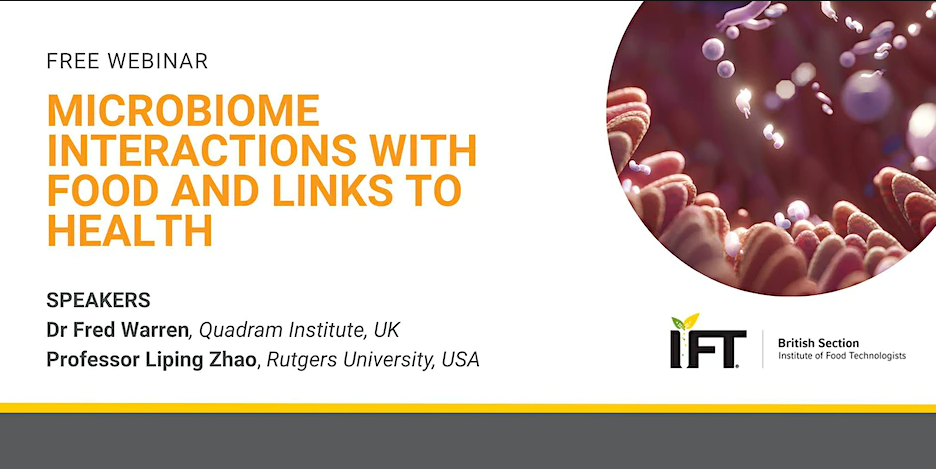
Feb 22,2023,Wednesday
16:00-17:00 GMT (11:00-12:00 EST)
Introducing research and knowledge development of how food interacts with our microbiome and the impacts this can have on health.
Free online event. Registration is needed.
https://www.eventbrite.co.uk/e/microbiome-interactions-with-food-and-links-to-health-tickets-532059954647
Speaker topics

Dr Fred Warren from Quadram Institute will describe their latest findings relating to the relationship between carbohydratestructure and the gut microbiome.
Carbohydrates are a key component of the human diet, and therefore modifications in carbohydrate structure can have a significant impact on our health. This can be through direct physiological effects, for example on glycaemic responses, or through indirect effects mediated by the gut microbiome. This talk will explore specific effects of carbohydrate structure and accessibility and breakdown by the gut microbiota, as well as exploring effects of carbohydrate structure on colonic physiology in healthy states and also gut disease such as Irritable Bowel Disease. The talk aims to demonstrate how carbohydrate structure is an important and modifiable aspect of diet which can be used to influence health through the design of novel food ingredients.
Professor Liping Zhao from Rutgers will speak on the topic of 'Reference-free and ecology-based discovery of microbiome biomarkers for disease monitoring and therapeutics development'.
Gut microbiome is not the “-ome of all microbial genes” but the “biome of all microbes” living in human gut. As a microbial ecosystem, microbiome is a complex adaptive system in which strains, as the most basic building blocks, organize themselves into a higher-level structure called guilds. Guilds are functional units that consist of strains with diverse taxonomic backgrounds yet work together to contribute to community level emergent functions relevant to human health. Co-abundance analysis of amplicon sequence variants (ASVs) of 16S rRNA gene or high-quality draft genomes assembled from metagenomic datasets can help identify key guilds whose ecological behavior correlates with host phenotypes. Different from taxon-based and gene-centric approaches, this strategy does not need any prior databases and can discover ecologically robust microbiome biomarkers for disease monitoring and therapeutics development.


